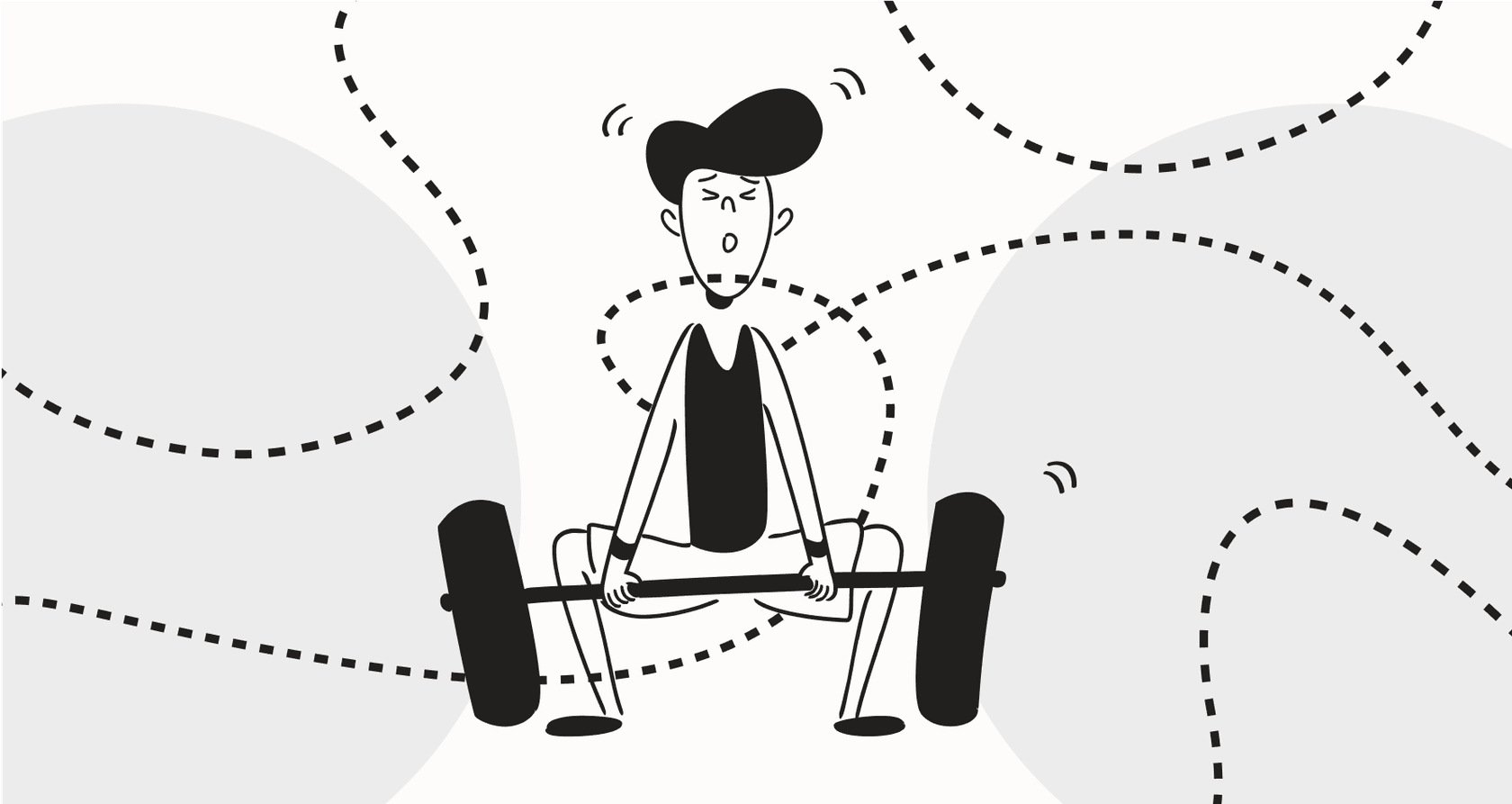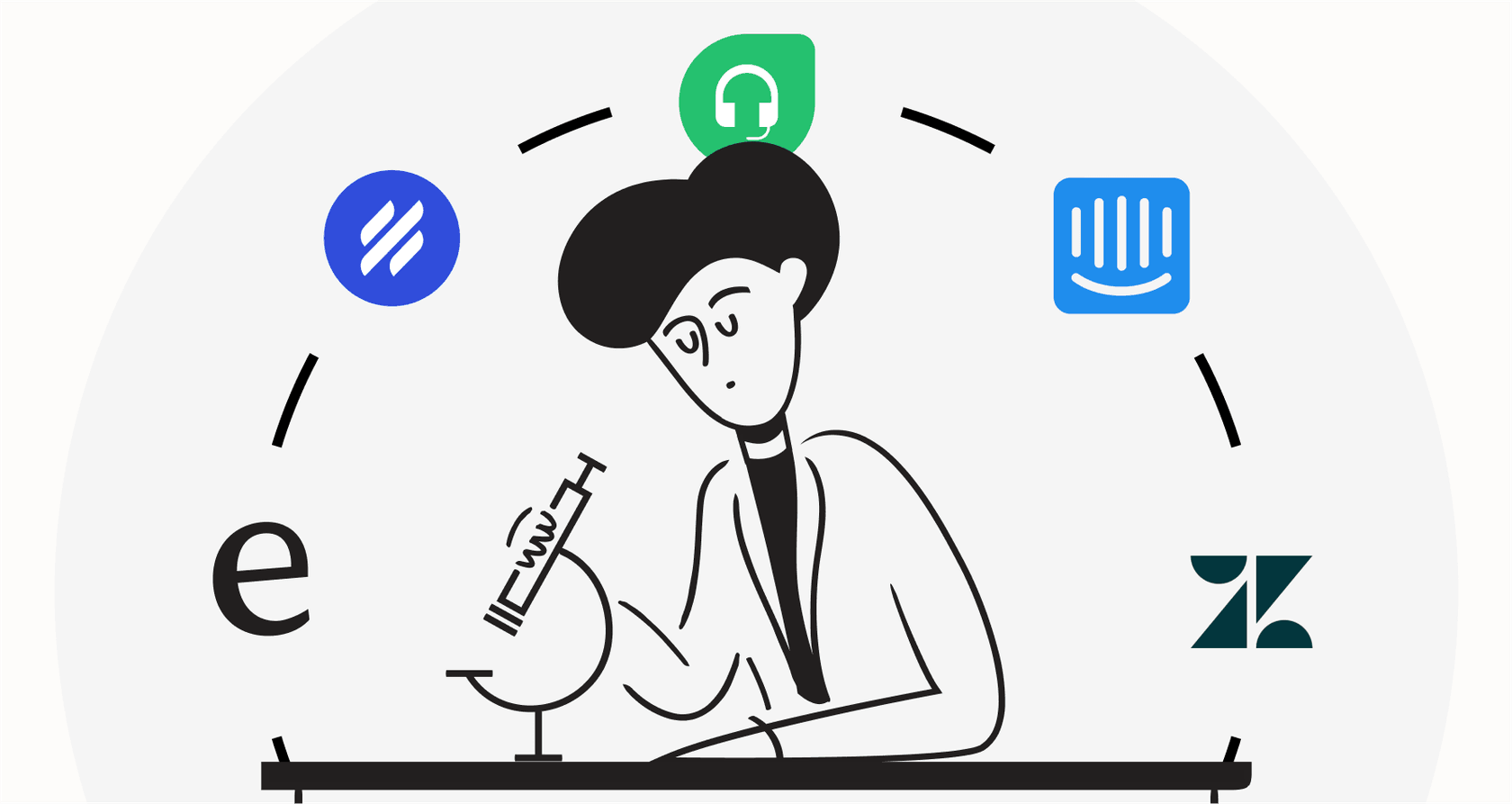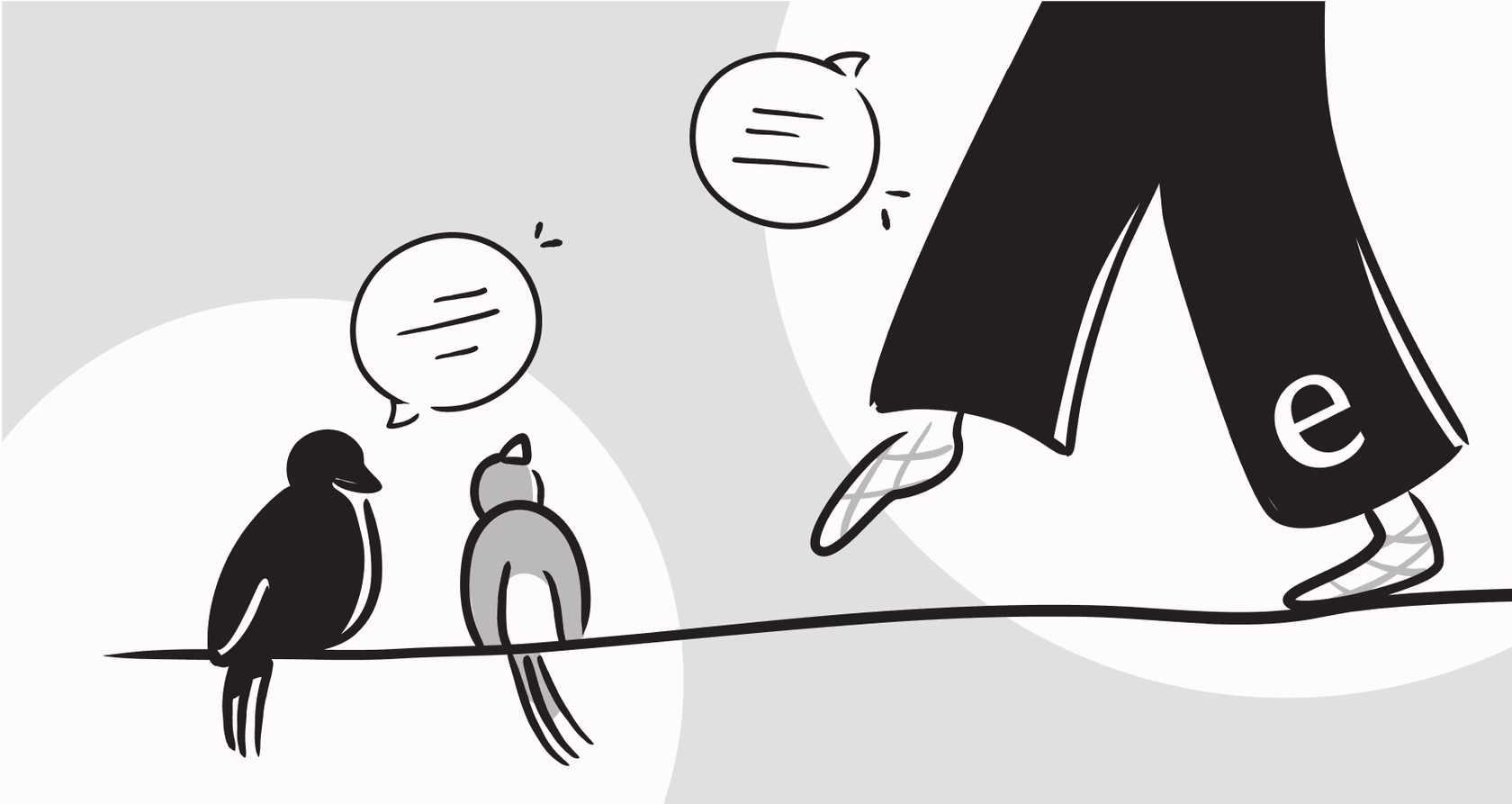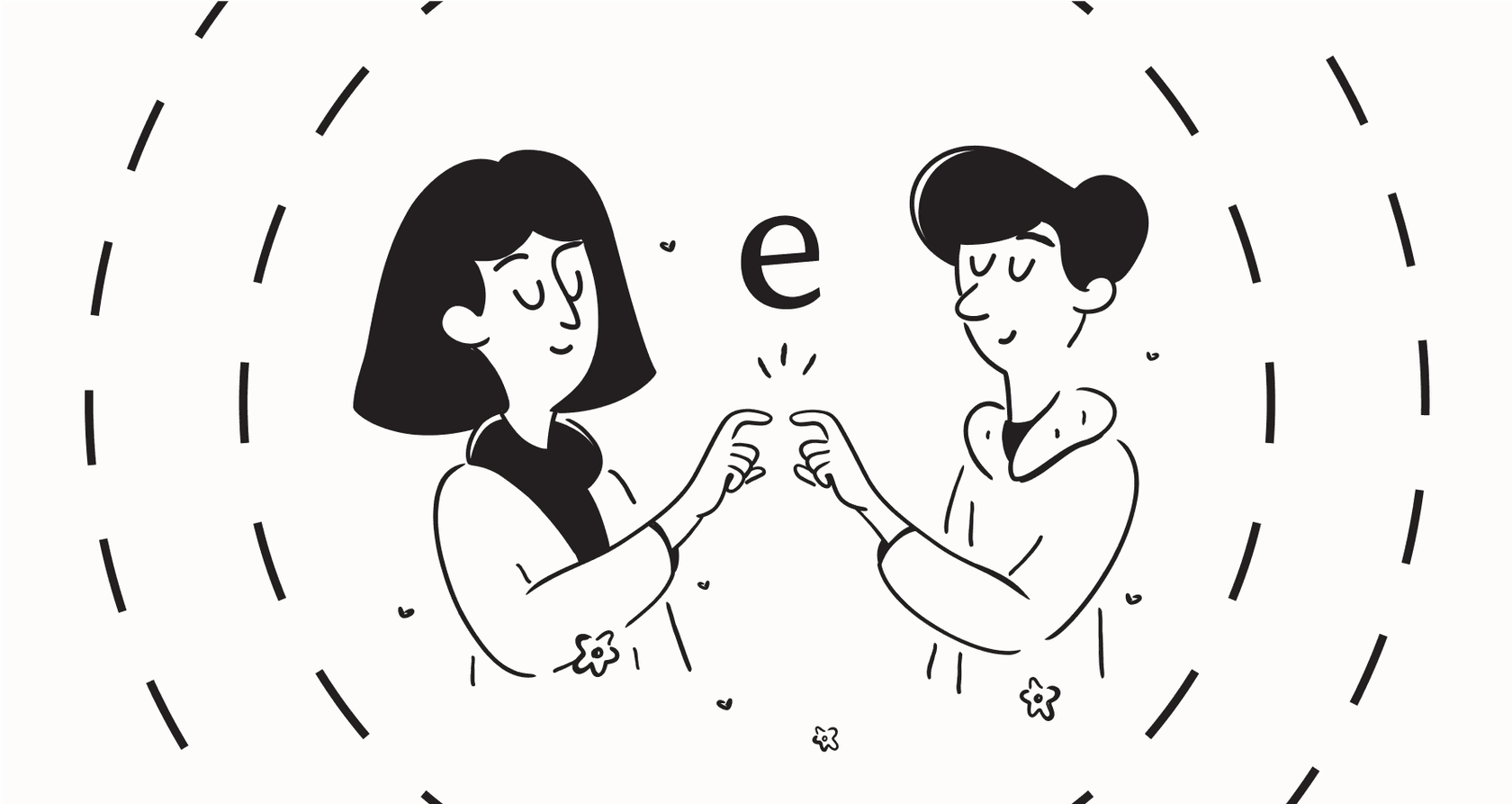The 8 best chatbot services for customer support in 2026

Kenneth Pangan
Last edited January 16, 2026

Let's be real, shopping for a chatbot service can feel like a chore. The market is flooded with options, and they all seem to promise they’ll completely change your customer support with AI. But once you start looking closer, you’re often met with confusing tech-speak, hidden fees, and platforms that want you to overhaul your entire workflow.
That's why I wrote this guide. My goal is to cut through the marketing fluff and give you a straightforward look at the best chatbot services available right now. We’ll cover everything from quick-to-launch tools to more heavy-duty enterprise solutions, helping you find the right match for your team.
What are chatbot services?
At their simplest, chatbot services are platforms that help you build, launch, and manage AI-powered chatbots. You can place these bots on your website, in your app, or connect them to channels you already use, like Slack or WhatsApp.
Thankfully, we've moved past the clunky, rule-based bots of a few years ago. You remember them, the ones that felt like a bad automated phone menu where you just end up mashing the "0" key to find a human. Today’s chatbots use Natural Language Processing (NLP) to actually figure out what a customer is asking, even with typos or weirdly phrased questions.
This upgrade means you can get some real wins: 24/7 support without overworking your team, lower running costs, and happier customers. They can even help with lead generation and sales questions, turning your support into a channel that brings in revenue.
How we chose the best chatbot services for this list
To put together a list that’s actually useful, I zeroed in on what matters day-to-day. It’s not about having the most features, it’s about what works in the real world. Here’s what I looked for:
- Setup and value: How fast can someone on your team (who isn't a developer) get a bot running and see it helping customers?
- Plays well with others: Does it plug into the helpdesk and tools you already use, or does it force you to move everything over to their system?
- AI quality: How smart is the bot, really? Can it understand the context of a conversation? And can you easily adjust its personality and what it knows?
- Testing capabilities: Can you test the bot on your own data in a safe space before it starts talking to live customers?
- Clear pricing: Is the pricing straightforward, or are you going to be surprised by a massive bill filled with per-ticket fees after a busy month?
A quick comparison of the top chatbot services
| Platform | Best For | Standout Feature | Pricing Model |
|---|---|---|---|
| eesel AI | Instant integration with existing helpdesks | Risk-free simulation on past tickets | Flat monthly fee (no per-resolution cost) |
| Chatbase | Building agents that can take action | Syncs with real-time data for actions | Tiered monthly subscriptions |
| Botsonic | Versatile AI with a focus on security | Model-agnostic AI gateway | Tiered monthly subscriptions |
| HubSpot Chatbot Builder | Businesses leveraging the HubSpot ecosystem | Deep integration with HubSpot CRM | Free, with tiered plans to scale |
| ChatBot.com | Visual, no-code bot building | Intuitive drag-and-drop builder | Tiered monthly subscriptions |
| Google Cloud Dialogflow CX | Large enterprises with complex needs | State-of-the-art NLU and scalability | Usage-based (pay-as-you-go) |
| Azure AI Bot Service | Companies invested in the Microsoft ecosystem | Low-code interface for fusion teams | Usage-based (premium channels) |
| Zapier Chatbots | Simple, automation-focused bots | Connects to thousands of apps via Zaps | Included in Zapier plans |
The 8 best chatbot services in 2026
Alright, let's get into the details. Here’s a breakdown of the top platforms that made the cut, each with its own vibe.
1. eesel AI: Best chatbot services for instant helpdesk automation
eesel AI is built around a simple idea: your AI should work where you work. It connects directly into helpdesks like Zendesk, Freshdesk, letting you automate support without a massive migration project. The whole thing is designed so you can sign up and have a live AI agent in just a few minutes, all on your own.
What’s great about it:
- Live in minutes: The setup really is self-serve. You connect your helpdesk with a click, and you’re ready to go.
- Risk-free simulation: This is a huge one. You can test your bot on thousands of your past tickets to see exactly how it would have performed. This gives you a solid forecast of your automation rate before you even think about going live.
- Learns from everything: It doesn't just read your help center. It learns from past tickets, macros, and can even connect to scattered knowledge in places like Google Docs or Confluence.
- No-surprise pricing: You pay a flat monthly fee. No extra charges per resolution, which makes budgeting so much easier.
What to consider:
- It's a newer platform, so it doesn't have the same name recognition as some of the older tools.
- If you need to set up very complex, custom API actions, it might require a little bit of configuration to get started.
Pricing: Plans start at $299/month for the Team plan, with the Business plan at $799/month.
2. Chatbase: Best chatbot services for building AI agents that take action
Chatbase is a great choice when you need a bot that can do things, not just answer questions. It’s designed to create AI agents that can perform actions in your other systems, like checking an order status or updating a customer’s profile in your CRM.
What’s great about it:
- It's really good at pulling in real-time data from your other business tools.
- The platform gives you fine-grained control over when a chat should be handed off to a human, and you can set the rules in plain English.
What to consider:
- The more actions and integrations you build, the more complicated the bot's logic can become to manage over time.
Pricing: Chatbase has a free plan to get your feet wet, with paid plans starting at $49/month.
3. Botsonic: Best chatbot services for security-conscious teams
Botsonic is an enterprise-grade chatbot builder from the team behind Writesonic. Its main draw is a serious focus on security and compliance, with SOC 2 and GDPR readiness right out of the box. It’s also "model-agnostic," meaning it uses a mix of different AI models behind the scenes to give you the best performance.
What’s great about it:
- They are very committed to data security and have a strict policy of not training their models on customer data.
- It’s a solid choice for creating AI assistants for both your team and your customers.
What to consider:
- The interface can sometimes feel like it's geared more toward content creation (its parent company's specialty) than pure customer support.
Pricing: Paid plans start at $49/month.
4. HubSpot Chatbot Builder: Best chatbot services for HubSpot users
If your company already lives and breathes HubSpot, their Chatbot Builder is a no-brainer. It's a free tool that's built right into the HubSpot CRM, so it’s easy to make bots that know your customer history and can kick off internal workflows.
What’s great about it:
- The connection with the HubSpot CRM is as smooth as it gets.
- You can start using it for free, which is perfect for smaller businesses.
- As a mature and reliable platform, HubSpot powers customer service for thousands of companies with its impressive ecosystem and marketplace.
What to consider:
- HubSpot offers tiered plans to match different team sizes, ensuring you can scale as you grow. While it provides a robust foundation, teams with niche training needs can easily complement their setup with specialized integrations from the HubSpot marketplace.
Pricing: The chatbot builder itself is free. HubSpot offers tiered Service Hub plans for teams looking to access more advanced enterprise-grade capabilities.
5. ChatBot.com: Best chatbot services for a simple visual builder
ChatBot.com is all about making bot building easy for anyone. Its core feature is a clean, drag-and-drop visual builder that lets you map out conversation flows without touching any code. It’s a solid pick for teams that want to design structured, guided chats.
What’s great about it:
- The visual editor is one of the most user-friendly ones out there.
- It offers a library of pre-built templates to help you get started faster.
What to consider:
- It relies more on pre-written scripts and rules than on generative AI. This can cause it to stumble when a customer asks something unexpected that doesn't fit the flow.
Pricing: Plans start at $52/month.
6. Google Cloud Dialogflow CX: Best chatbot services for enterprise scalability
Dialogflow CX is Google's big, powerful platform for building enterprise-level conversational AI. It has some of the best natural language understanding (NLU) tech available and is built to handle huge numbers of conversations, making it a favorite for large companies with developer resources.
What’s great about it:
- Its ability to follow complex, back-and-forth conversations is second to none.
- It’s extremely scalable and reliable.
What to consider:
- There's a steep learning curve, and you really need technical skills to get the most out of it. The usage-based pricing can also be hard to predict and can get expensive. In contrast, a tool like eesel AI is made for non-technical users and has simple, flat pricing.
Pricing: Pay-as-you-go, based on the number of interactions.
7. Azure AI Bot Service: Best chatbot services for the Microsoft ecosystem
For companies that run on Microsoft, the Azure AI Bot Service makes a lot of sense. It provides a complete development environment for building bots that connect easily with products like Microsoft Teams and the broader Azure cloud platform.
What’s great about it:
- Deep integration with all things Microsoft.
- It has a low-code graphical interface meant for teams of both business users and developers.
What to consider:
- It's most useful if you're already paying for Azure. For teams with simpler automation needs, it can feel overly complicated.
Pricing: Usage-based, depending on how many messages are processed.
8. Zapier Chatbots: Best chatbot services for simple workflow automation
Zapier Chatbots does what Zapier does best: connects apps. It lets you build simple chatbots that are designed to trigger automations in thousands of other tools. It's perfect for task-based bots, like one that collects lead info and adds it to a Google Sheet.
What’s great about it:
- It can connect to over 5,000 different apps, which is pretty incredible.
- You can set up basic automations in minutes without any code.
What to consider:
- This is not a dedicated customer support tool. It's missing the advanced conversational AI, analytics, and agent-assist features you'd need for a real support setup.
Pricing: Included with Zapier's paid subscription plans.
How to choose the right chatbot services for your business
Okay, that was a lot. If you're not sure where to start, try asking yourself these five questions to narrow down the options.
1. How much time and technical skill do we actually have? If the answer is "not much," look for a self-serve platform like eesel AI that you can get running in an afternoon. If you have developers ready to go, a more customizable tool like Dialogflow CX could be an option.
2. Do we want to ditch our current helpdesk? This is a big one. Some platforms are all-in-one and expect you to move your entire support team over. Others, like eesel AI, are built to plug into the tools you already use, saving you from a huge migration headache.
3. Where is our company knowledge stored? Is all your info neatly organized in a help center? Or is it spread across Google Docs, old Confluence pages, and your senior agents' brains? Find a tool that can learn from all these sources, not just one.
4. How can we tell if it will actually work for us? Don't just believe the sales demo. Ask if you can test the AI on your real historical data. The ability to run a simulation, which is a key part of eesel AI, is the best way to see how it will perform before you commit.
5. What’s our real budget? Keep an eye out for pricing models that charge per interaction. They can seem cheap at first, but costs can jump unexpectedly. A flat monthly fee gives you peace of mind and lets you scale without worrying about the bill.
This video breaks down several top AI chatbots to see how they stack up for different tasks, from productivity to customer service.
Add AI chatbot services to your support without the headache
Choosing the right chatbot service isn't about finding the tool with the most features. It's about finding the one that fits your current workflow, learns from your team's knowledge, and starts delivering results quickly. The best tools today don't ask you to tear everything down and start over: they make what you already have better. They let you start small, test things out, and grow at your own pace.
Tired of sitting through long demos and dealing with complicated setups? With eesel AI, you can connect your helpdesk and launch an AI agent trained on your actual data in just a few minutes. See for yourself with a risk-free simulation. Try eesel AI for free.
Frequently asked questions
Not necessarily. Many modern platforms like eesel AI are designed for non-technical users and can be set up in minutes. However, more complex enterprise tools like Google Cloud Dialogflow CX will likely require developer resources to get the most out of them.
It depends on the platform. Some services are all-in-one solutions that want you to migrate, but others are designed to integrate directly with your existing helpdesk like Zendesk. This is a key factor to consider, as it can save you a major migration headache.
It can be difficult, which is why it's important to understand the pricing model. Platforms with flat monthly fees offer predictable budgeting, while usage-based models can fluctuate. If you choose a usage-based plan, ask the provider for an estimate based on your current ticket volume.
Yes, the best modern tools are built for this reality. Look for services that can connect to and learn from multiple sources beyond just a formal help center, including scattered knowledge in places like Google Docs, Confluence, or even past support tickets.
The best way is to find a service that offers a simulation or testing feature. Platforms like eesel AI let you run the bot against your past support tickets, giving you a clear forecast of its performance and automation rate before you ever put it in front of a live customer.
Not at all. The goal is to automate repetitive, common questions so your human agents can focus on the complex issues where they are needed most. A good chatbot service works alongside your team, handling the simple stuff 24/7 and ensuring a smooth handoff to a person when necessary.
Share this post

Article by
Kenneth Pangan
Writer and marketer for over ten years, Kenneth Pangan splits his time between history, politics, and art with plenty of interruptions from his dogs demanding attention.






